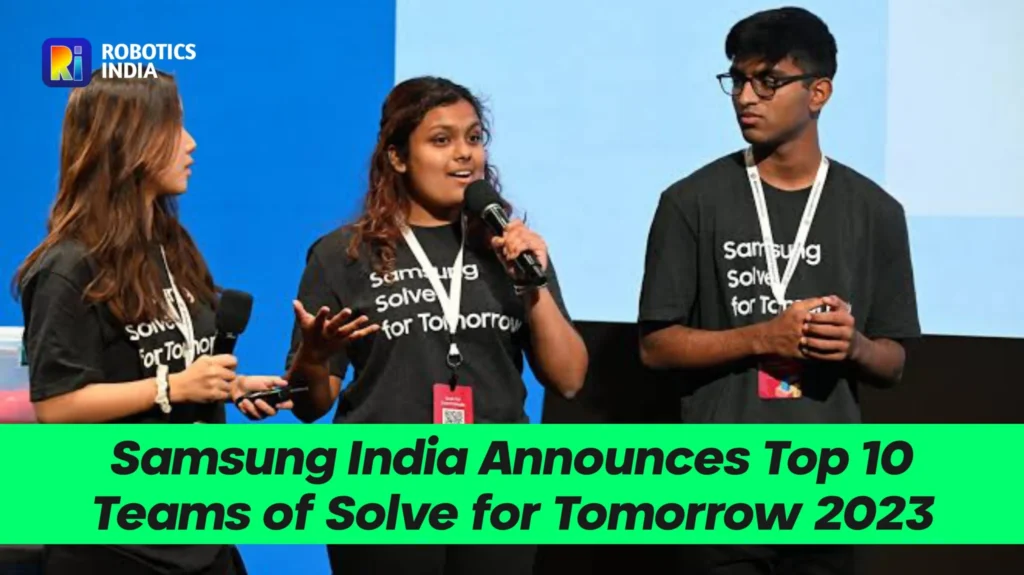Samsung India has announced the top three winning teams of its youth education and innovation competition, Solve for Tomorrow 2023.
The first winning team is NIT Surat, which has created an automated beach-cleaning robot called Sweep. The second winning team is Stemly, which has developed a conversational AI tool to assist women in choosing STEM fields. The third winning team is Think, which has built a personal cooling device called ‘Kavach’ for individuals who work outdoors. These three teams were awarded a total prize money of Rs 1.5 crore to further develop their ideas and bring them to life.
In addition to the prize money, the winning teams received certificates and trophies that represent the spirit of innovation embodied by the program. All members of the top 10 teams also received certificates from Samsung, IIT Delhi, and MeitY Startup Hub. Furthermore, they were given Samsung’s latest flagship smartphone, the Galaxy Z Flip5, along with a cash prize of Rs 100,000.

JB Park, President & CEO of Samsung Southwest Asia, expressed his belief in the power of youth to think creatively and innovate. He stated that Samsung Solve for Tomorrow provides a platform to nurture this kind of thinking, and he commended the young innovators for their ambition to make a positive impact on the world and transform people’s lives. Park congratulated all the winners of Solve for Tomorrow 2023 and wished them success on their exciting future endeavors. He emphasized Samsung’s belief that these young innovators have the potential to greatly contribute to India’s growth story.
The three winning teams were selected after a Grand Finale event held in New Delhi. During the event, the top 10 teams presented their final pitches and showcased their prototypes to the Grand Jury, which consisted of Mr. Mohan Rao Goli, Chief Technology Officer at Samsung R&D Institute in Bangalore; Mr. Shombi Sharp, United Nations Resident Coordinator in India; and Dr. Archana Chugh, Professor at the Kusuma School of Biological Sciences, IIT Delhi.




